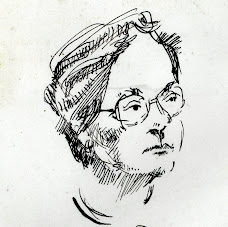I like the PBS series, The American Experience. My only real problems with it are that I can't remember what night it's on, and that I still haven't adjusted to the Eastern Time Zone, so everything on TV seems as if it's on much too late. Fortunately for me, the PBS website carries information on the series (and some episodes can be watched online) and Netflix has it available for rental. So when I found a reference to an episode called The Great Fever while doing some genealogy research, I was able to have it at home to watch within a couple of days. (I will be blogging about the genealogy on a new blog, coming soon!)
The Great Fever was yellow fever, and the film is a documentary about how Walter Reed, Jesse Lazear, and others proved that the fever was transmitted by mosquitoes, enabling effective prevention measures to be undertaken and saving thousands of lives. This happened during the aftermath of the Caribbean phase of the Spanish-American War, during which U.S. forces took Cuba and Puerto Rico with a minimum of combat deaths but a huge number of deaths from disease -- typhoid, malaria and yellow fever.
The film, like most in the series, uses a variety of techniques. The talking heads and period photographs, paintings and documents with which we're familiar from Ken Burns's work are there, but added to them are re-enactments which make the hour-long film move faster. This was very effective in The Great Fever, juxtaposing a contemporary photo of one of the doctors with film of an actor applying a disease-bearing mosquito to his own arm with the help of a test-tube. In addition, the series uses very early motion pictures taken during the war (the first in which motion pictures played a role in keeping records of the war). I learned some useful background material from this film and it was a good way to spend an hour. I'd recommend it to anyone with an interest in epidemiology or the Spanish-American War, and especially also to genealogists who may find a Spanish-American War veteran or yellow fever victim in their ancestry.
Subscribe to:
Post Comments (Atom)


The scene where the researcher held a test tube with a mosquito in it to his arm was in a 1950s or early 60s television film. The film covered similar material but was dramatized and focused on the personalities and events directly associated with the mosquito research. I remember it as being part of an ongoing dramatic series featuring dramatizations of "true events." Is there anybody reading this who has any idea of what I am remembering?
ReplyDeleteWas it "You Are There"?
ReplyDelete